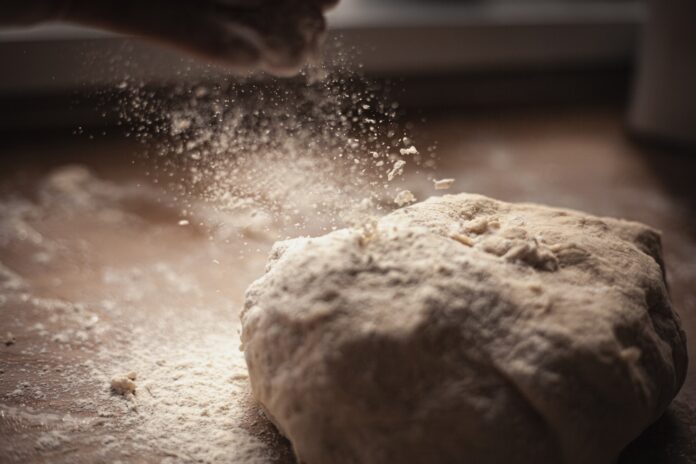The trick to flouring the bench
when rolling out dough or kneading:
A palm twist, and a breath
of skillful gauze
keeps raw dough pliant,
peeling clean from smooth wood,
silky to the hand.
The same craft releases tiny, even
flakes of snow on every surface.
A layer between flesh
and pull of earth.
In twilight, thorns of cold air,
the dust of ice, disguise
the planet’s deep magma.
Summer will soon raise and ripen
the loaf, the adventure.
Rain will glaze the urban crust.
Patience tunes the gaze.
When you flex aching hands,
shake out your shoulders,
stars sift from the densest clouds.
Image: photo by Duncan Kidd on Unsplash, licensed under CC 2.0.
Mary Elizabeth Birnbaum:
When I read Rilke’s line, “You must change your life,” I note to myself that I must deepen my life—my inner perceptions. A poem can begin almost by accident—I am always challenging myself. I notice something that I have never noticed until the moment. The grace and skill of a habitual movement. This is the entrance to the poem’s path. But sometimes I stumble out of the poem again, which happened with “Baking Weather.” I had to find the heart of the poem. This is revision, re-seeing, and it’s a deep act, not only of writing, but of personal being. Often I strike out the first lines and many others, rearrange lines or stanzas, introduce strong new imagery to impact the original glimpse that began the poem, to see more deeply.
Mary Elizabeth Birnbaum was born, raised, and educated in New York City. She has studied poetry at the Joiner Institute in UMass, Boston. Mary’s translation of the Haitian poet Felix Morisseau-Leroy has been published in The Massachusetts Review, the anthology Into English (Graywolf Press), and in And There Will Be Singing, An Anthology of International Writing by The Massachusetts Review, 2019 as well. Her work is forthcoming or has recently appeared in Lake Effect, J-Journal, Spoon River Poetry Review, Soundings East, and Barrow Street.
Latest posts by Mary Elizabeth Birnbaum
(see all)


